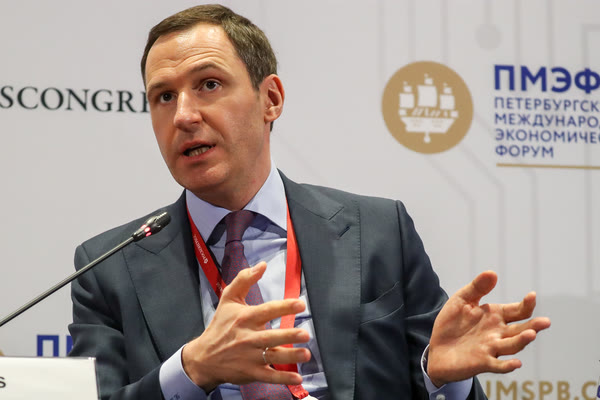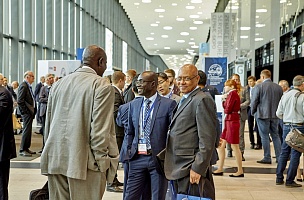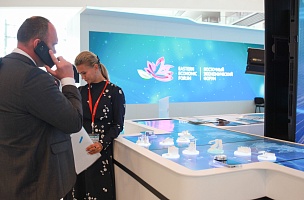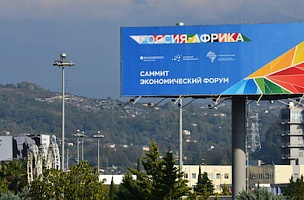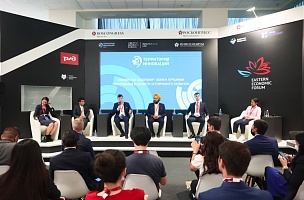KEY CONCLUSIONS
Russians are ready for separate garbage collection
«We see that a large number of our citizens — around 47% — are actively in favour of changing the situation involving the waste management system. I wouldn’t say [...] that this demand is solely for solid household waste. Most citizens, especially the younger generation, are actually concerned about the waste that we don’t seem to see, but which is present in our environment. This trend has an extremely aggressive potential to increase,» Russian Environmental Operator Public Law Company General Director Denis Butsayev said.
«We have special recycling stations where we are demonstrating all this [the ability to recycle waste], and each day up to 2,000 users come and bring recyclable materials there because they see no other alternatives. But they want to recycle, they want to sort the garbage. So, there is already a large group of people who are ready for this. All we need is the infrastructure. People in Russia are ready to do good for the planet,» Ingka Group in Russia Chairman of the Board of Directors Patrik Antoni said.
PROBLEMS
Flaws in the regulatory framework and a lack of digitalization
«Decree 474 ‘On the National Goals [for Russia’s Development until 2030]’ states that, by 2030, we must sort 100% of waste, halve the amount of so-called tailings, and reduce disposal at landfills. For this purpose, we need a new industry for working with this waste and rules for putting waste from secondary material resources back into circulation. This won’t work without regulation and without binding instructions from the government. [...] It won’t go anywhere without digitalization. [...] There should be clear traceability from the source of garbage to its disposal, utilization, and sorting,» Russian Deputy Prime Minister Viktoria Abramchenko said.
"On paper, we recycle almost like Germany. It’s very successful [and includes] almost everything, down to rubber and so on. Because one sheet of paper is enough for reporting. [...]It’s impossible to verify since no statistical system and no hands will be able to sift through such a large number of acts that are being issued at the moment. The industry needs digitalization,«Russian Environmental Operator Public Law Company General Director Denis Butsayev said.
«As a fairly large company, we are interested in a certain level of tightening, in particular as regards the requirements for digitalization,» Citymatic Chairman of the Board of Directors Sergey Kotlyarenko said.
«In Moscow, since 2010, at the level of the capital’s government, we have introduced the right to establish environmental requirements for state orders for various types of products [...] Over the eleven years of this practice in Moscow, there have been many questions with the antimonopoly service because we don’t have any criteria. We can’t standardize these products yet. Of course, we need to do this. In addition, there are questions about the overstated requirements of the Federal Antimonopoly Service,» Director of the Moscow Department for Environmental Management and Protection Anton Kulbachevsky said.
SOLUTIONS
Smooth change to requirements
"In the Ministry of Natural Resources, we have created a working group together with the Russian Union of Industrialists and Entrepreneurs and the Committee on Ecology with the support of the Minister of Natural Resources. The first bill that we are discussing is the Subsoil Law. [...] Amendments to the Subsoil Law stating that it’s possible to use fifth hazard class waste to liquidate mine workings. We have already clarified that this isn’t actually waste,«Citymatic Chairman of the Board of Directors Sergey Kotlyarenko said.
«What we need to do is completely overhaul regulation [...] The government is currently working on two key laws concerning waste management,» Russian Deputy Prime Minister Viktoria Abramchenko said.
«There should be no shocks to the economy from the introduction of new requirements. If we introduce new requirements for business, in particular, as regards a ban on certain types of packaging, then it should be a phased system, in which the sales market and competitive advantages are not lost,» Russian Environmental Operator Public Law Company General Director Denis Butsayev said.
For more information, visit the ROSCONGRESS.ORG Information and Analytical System.


